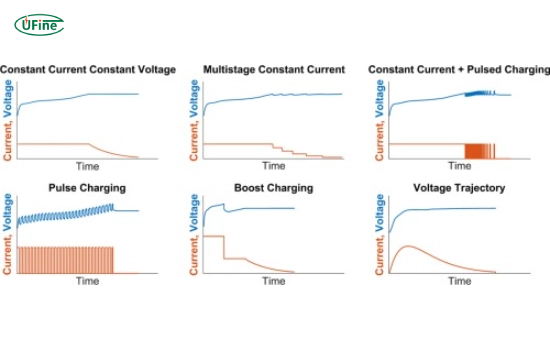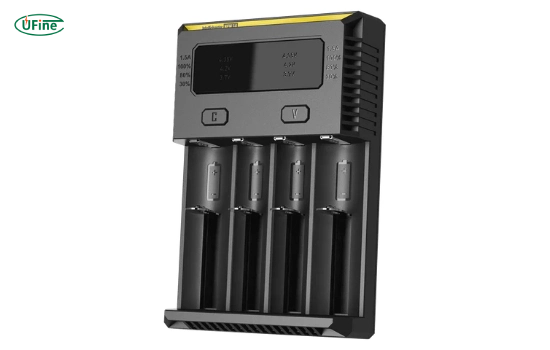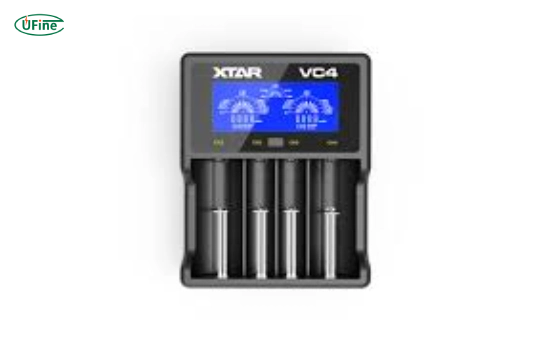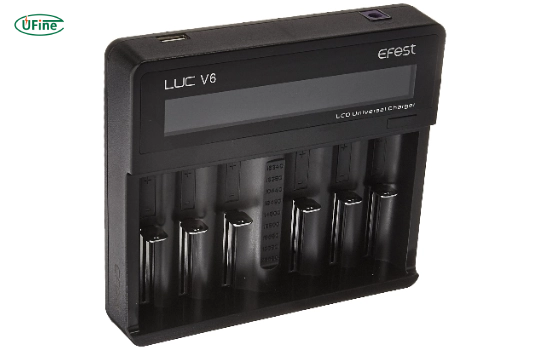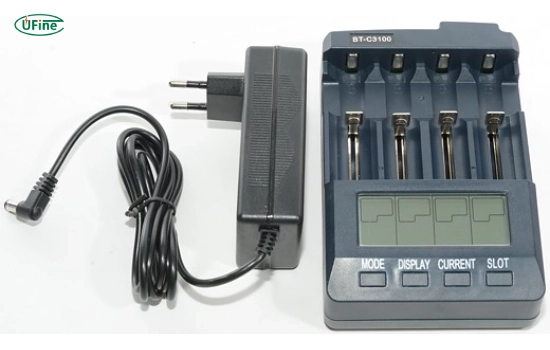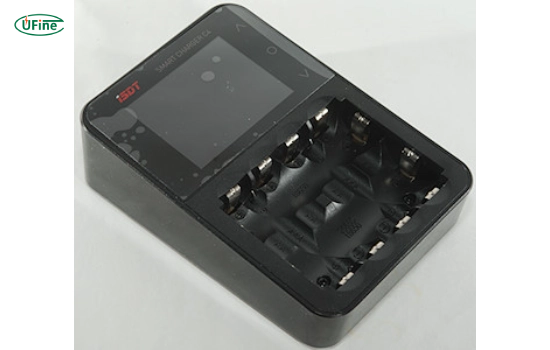When it comes to maintaining the performance and longevity of your lithium batteries, selecting the proper battery chargers for lithium batteries is crucial. In this comprehensive guide, we will delve into everything you need to know about choosing the best battery chargers for lithium batteries. By the end of this article, you’ll be equipped with the knowledge to make an informed decision, ensuring your batteries stay in optimal condition.
Part 1. Understanding lithium batteries
What Are Lithium Batteries?
Lithium batteries, known for their high energy density and long lifespan, are commonly used in various applications, from smartphones and laptops to electric vehicles and renewable energy systems. Unlike other types of batteries, lithium batteries require specific charging protocols to maximize their performance and safety.
Types of Lithium Batteries
There are several types of lithium batteries, each with its characteristics:
- Lithium-ion (Li-ion): Widely used in consumer electronics.
- Lithium Iron Phosphate (LiFePO4): Known for its safety and stability.
- Lithium Polymer (Li-Po): Popular in RC models and drones for their lightweight and high discharge rates.
Specific Charging Protocols for Lithium Batteries
Lithium batteries require specific charging protocols to ensure safety and efficiency. These protocols include:
- Constant Current/Constant Voltage (CC/CV): This is the most common method, where the charger provides a constant current until the battery reaches a specific voltage, then switches to a constant voltage mode.
- Balance Charging: Especially important for multi-cell lithium batteries, balance charging ensures the charger charges each cell equally to prevent overcharging or undercharging.
- Trickle Charging: This method maintains a full charge without overcharging the battery. It provides a shallow, constant current after the primary charge cycle.
Using the correct charging protocol is essential for extending the life of your lithium batteries and ensuring safe operation.
Part 2. Why does choosing the suitable battery chargers for lithium batteries matter?
Safety Concerns
Lithium batteries can be sensitive to improper charging. Using the wrong battery chargers for lithium batteries can lead to overheating, overcharging, and even fire hazards. Ensuring you have a compatible charger helps mitigate these risks.
Performance and Longevity
A well-matched battery charger for lithium batteries can significantly enhance the performance and lifespan of your lithium batteries. Proper charging ensures the battery maintains capacity and delivers reliable power over time.
Part 3. Key features to look for in battery chargers for lithium batteries
Compatibility
Ensure the battery charger for lithium batteries is compatible with your specific type of lithium battery. Check the voltage and current requirements specified by the battery manufacturer.
Charging Speed
Charging speed is an essential factor to consider. Fast battery chargers for lithium batteries can save time but may generate more heat, which could affect battery life. Look for chargers that balance speed with safety features.
Safety Features
Safety features such as overcharge protection, short circuit protection, and temperature monitoring are essential to prevent damage to your battery and ensure safe operation.
Portability
For those who need to charge on the go, the portability of the battery charger for lithium batteries is a crucial consideration. Look for compact and lightweight designs that are easy to carry.
Reputation and Reviews
Researching the reputation of brands of battery chargers for lithium batteries can provide insights into their reliability and performance. Look for brands with positive user reviews and a history of producing quality charging products.
Warranty and Support
A good warranty and responsive customer support can indicate a brand’s confidence in its product. It also provides peace of mind if you encounter any issues with the battery charger for lithium batteries.
Part 4. Top battery chargers for lithium batteries
1. Nitecore i4 Intellicharger
The Nitecore i4 is a versatile smart charger compatible with various lithium battery types. It features automatic voltage detection and overcharge protection, making it a reliable choice for safe charging.
2. XTAR VC4
The XTAR VC4 is known for its dual input options and LCD, which show real-time charging status. It is compatible with various lithium batteries and includes multiple safety features.
3. Efest LUC V6
Efest LUC V6 offers six charging bays and is ideal for users who need to charge multiple batteries simultaneously. It includes overcharge and short circuit protection, ensuring safety alongside convenience.
4. Opus BT-C3100
The Opus BT-C3100 is a highly recommended smart charger with a wide range of compatibility. It features four independent charging bays and offers extensive safety features, including overheat detection and reverse polarity protection.
5. ISDT C4
The ISDT C4 is a compact and efficient charger known for its high charging speed and intelligent features. Its intuitive interface supports multiple battery chemistries and provides detailed charging information.
Part 5. Practical tips for using battery chargers for lithium batteries
Follow Manufacturer Guidelines
Always adhere to the manufacturer’s guidelines for the battery and the charger. This includes recommended charging rates, voltage limits, and usage instructions.
Avoid Extreme Temperatures
Lithium batteries can be sensitive to extreme temperatures. Avoid charging in environments that are too hot or cold, as this can negatively impact the battery’s performance and lifespan.
Regularly Inspect the Charger
Regularly inspect your battery charger for lithium batteries for any signs of wear or damage. Replace a damaged charger immediately because it can pose safety risks.
How to Charge a Lithium-ion Battery?
Part 6. FAQs
-
Can I use a lead-acid charger for my lithium battery?
No, it would be best not to use a lead-acid charger for lithium batteries. Lithium batteries require specific charging protocols that lead-acid chargers do not provide. Using the wrong charger can damage the battery and pose safety risks. -
How do I know if my lithium battery is fully charged?
Most lithium battery chargers have indicators that show when the battery is fully charged. Typically, a green light or a display reading “full” will indicate that charging is complete. Always refer to your charger’s manual for specific details. -
Is it safe to leave my lithium battery on the charger overnight?
Leaving a lithium battery on the charger overnight is generally safe if the charger has overcharge protection. However, it’s best practice to avoid prolonged charging when possible to extend battery life. -
Why does my lithium battery get warm while charging?
It’s normal for lithium batteries to get slightly warm during charging due to the energy transfer process. However, if the battery becomes very hot, it could indicate a problem with the charger or the battery itself. Stop charging and check both the battery and charger. -
Can I use a phone charger to charge my lithium battery?
You are using only a charger specifically designed for your lithium battery type. Phone chargers may not provide the correct voltage or current, which can damage the battery or reduce its lifespan.
Related Tags:
More Articles

What Is a Thin Film Solar Cell? A Complete Guide to This Advanced Solar Technology
Thin film solar cells are transforming energy use. This guide covers how they work, their benefits, applications, and more.
Should You Buy a Lithium Cranking Battery?
Thinking about a lithium cranking battery? Discover if it's really worth your money. Read more to make an informed choice today.
LMFP Battery Market Outlook: Will It Replace LFP and NMC?
The LMFP battery is emerging as a potential alternative to LFP and NMC batteries, offering better performance, safety, and cost.
Find the Best Deals on 300Ah Lithium Batteries Now
A 300Ah lithium battery offers reliable energy storage. It’s lightweight, efficient, and cost-effective. Choose smart energy solutions now!
What Makes a High-Density Lithium-Ion Battery Superior?
High-density lithium-ion batteries are revolutionizing portable electronics and EVs with greater energy density, efficiency, and potential across industries.
